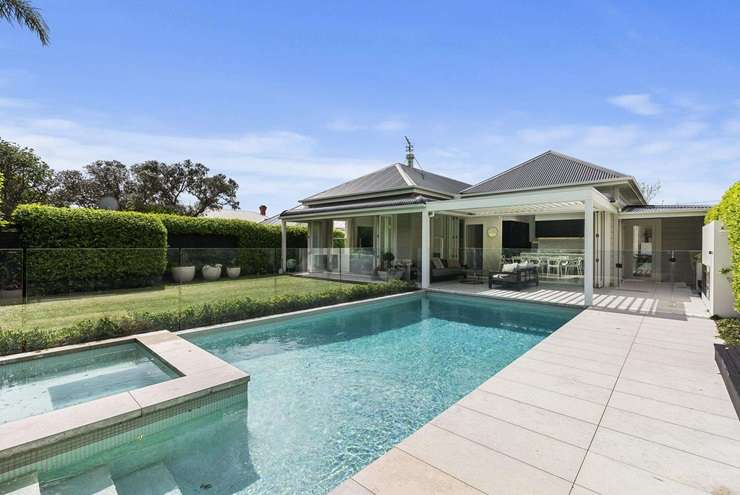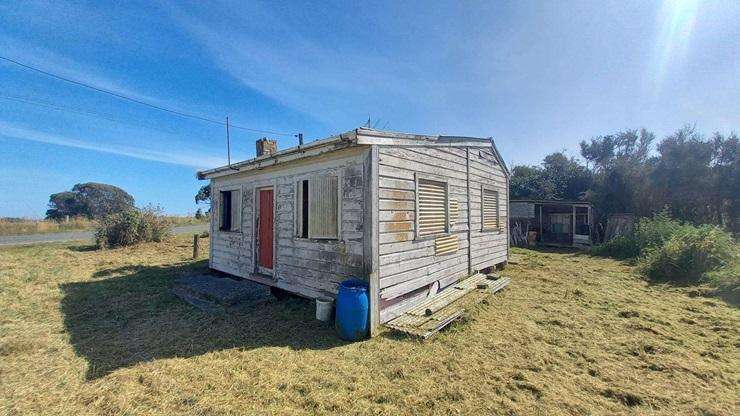Less pain in the market
Listings aren’t the Da Vinci Code, so you don’t need Robert Langdon to work out what’s really going on when you read “vendor urgently seeking a sale” or “ignore previous sale price – our vendors are dedicated to a sale”. The latest sales analysis from CoreLogic, however, shows the level of pain in the market has eased. The percentage of total resales in the last quarter of 2024 that made a loss was 9%, down from 9.9% in Q3. The figures chime with the improvements seen in other market stats, with separate OneRoof-Valocity figures showing a modest lift in New Zealand house prices over the same period.
Start your property search
The CoreLogic report highlights the importance of the “hold period” – the length of time a vendor has held on to their property before selling it. Those who sold for a gross profit typically held onto their properties for nine years, up from just over eight years the previous quarter. Those making a gross loss were typically selling after three years – which suggests those taking the biggest hits bought at the height of the market and were possibly selling because of higher interest rates.
As CoreLogic’s chief economist Kelvin Davidson points out: “Even in a downturn, anybody who has owned property for several years will still tend to make a profit. For owner-occupiers it’s not necessarily a cash windfall either. Indeed, most equity will just need to be recycled back into the next purchase.”
Sellers in Queenstown-Lakes enjoyed the biggest median profit ($465,000), but also the biggest median loss ($110,000). Sellers in Christchurch and Dunedin felt the least amount of pain (the median resale loss in both cities was $35,000).
The biggest individual resale profits were all in Auckland and in wealthy suburbs. A luxury bach on Kokopu Street, in Omaha, (listed with Ray White’s Heather Walton) made an on-paper profit of more than $5m when it sold for $7.5m in November, 13 years after the vendor bought it. And a plush villa on Masons Avenue, in Herne Bay, (listed with Bayleys’ Edward Pack) netted a gross profit of just over $3.7m after selling for $6.175m in October. The hold period on that house was nearly 17 years.

A villa on Masons Avenue, Herne Bay, made an on-paper profit of more than $3.7m after selling for $6.175m. Photo / Supplied
The homes suffering the biggest losses were also all in Auckland and had extremely low hold periods, with one Greenlane townhouse losing its vendor $720,000 in the space of a year even after selling for just over $3m in December.
It goes without saying that the profits and losses discussed in the CoreLogic report are on paper only, and don’t reflect the money a vendor may have paid to improve or in some cases completely rebuild their property over the years.
Bargain hunting
Checking out run-down cheaper properties seems to be a sport for Kiwi buyers. One on the market for $85,000-plus in Tuatapere, Southland, has racked up thousands of views within 24 hours of hitting the market while a “munted” shack in Seddonville, Buller, has been equally popular with bargain-hunters since it hit the market last year.

112 Grove Burn Road, in Tuatapere, Southland, is for sale “as is, where is” and is looking for offers over $85,000. Photo / Supplied
Todd & Co agent Melanie Muldrew says her Tuatapere property has the potential to be developed and could attract someone with vision. Property Brokers agent Paul Murray, who has the “munted” shack, agrees there’s a good market for challenging do-ups but notes the drawbacks too, telling OneRoof NZ: “I understand why people buy derelict buildings and do them up. It’s a good way to get land and allows them to do a little bit of work every time they have money. But people often don’t take into account the cost of doing that. The building cost. It can be quite a lot more than people think.”
A quick game’s a good game
Ruby Tui scored a stonking win this month, selling her Tauranga home within a few days. EVES listing agent Rachel Martin told OneRoof the rugby star’s home – with an extra big backyard for practising tackles – was extremely popular with buyers, attracting multiple offers after the first open home at the end of January. “It was under contract pretty much straight away,” she said.
Tui’s quick sale isn’t an outlier. Several agents have contacted OneRoof in recent weeks with similar stories. Buyers are making offers quickly, and while most of the fast sales have been for below $1m, in that first-home buyer price bracket, some have been for big money.
- Owen Vaughan is editor of OneRoof.co.nz. You can contact him with any property tips or story ideas at owen.vaughan@nzme.co.nz













































































